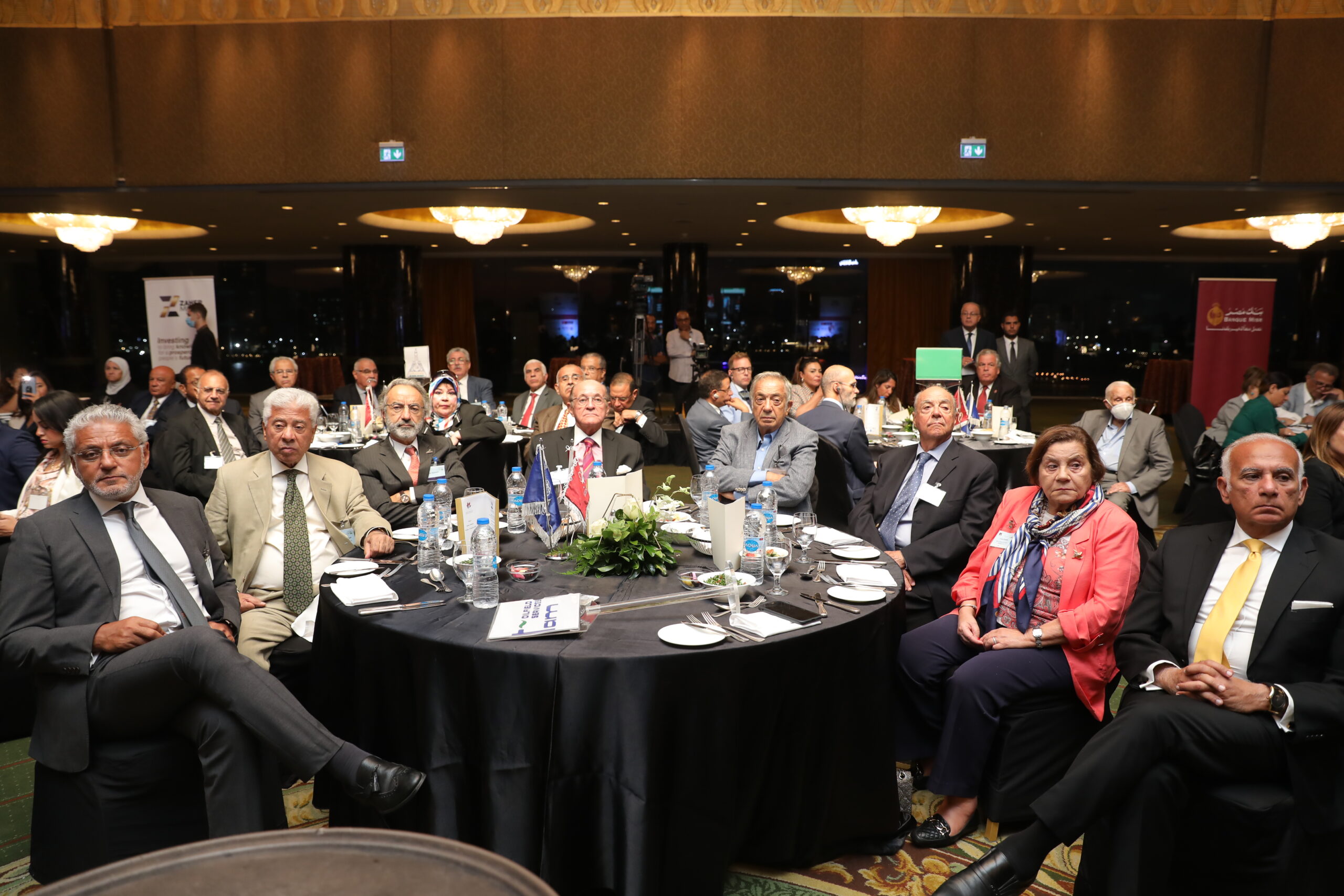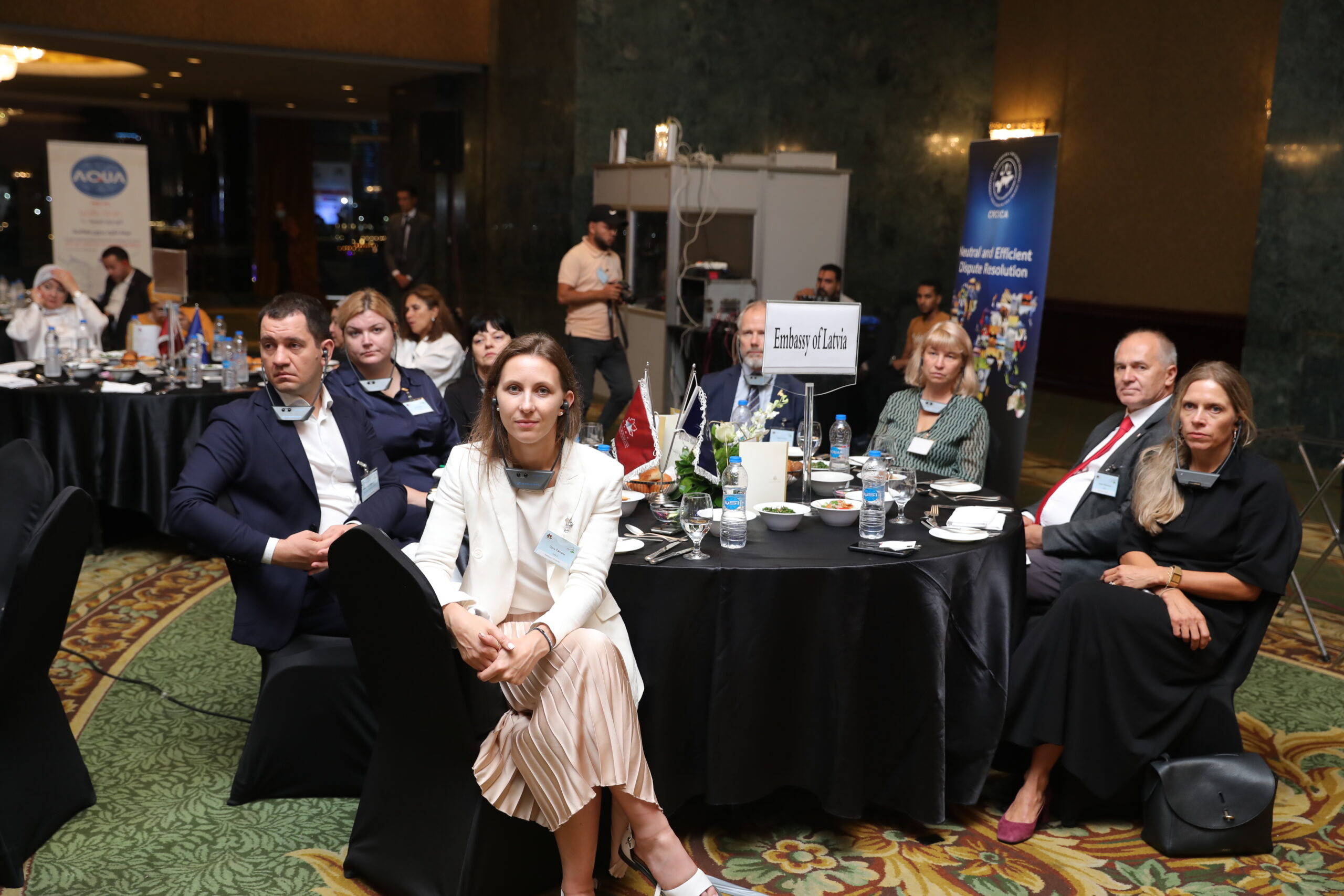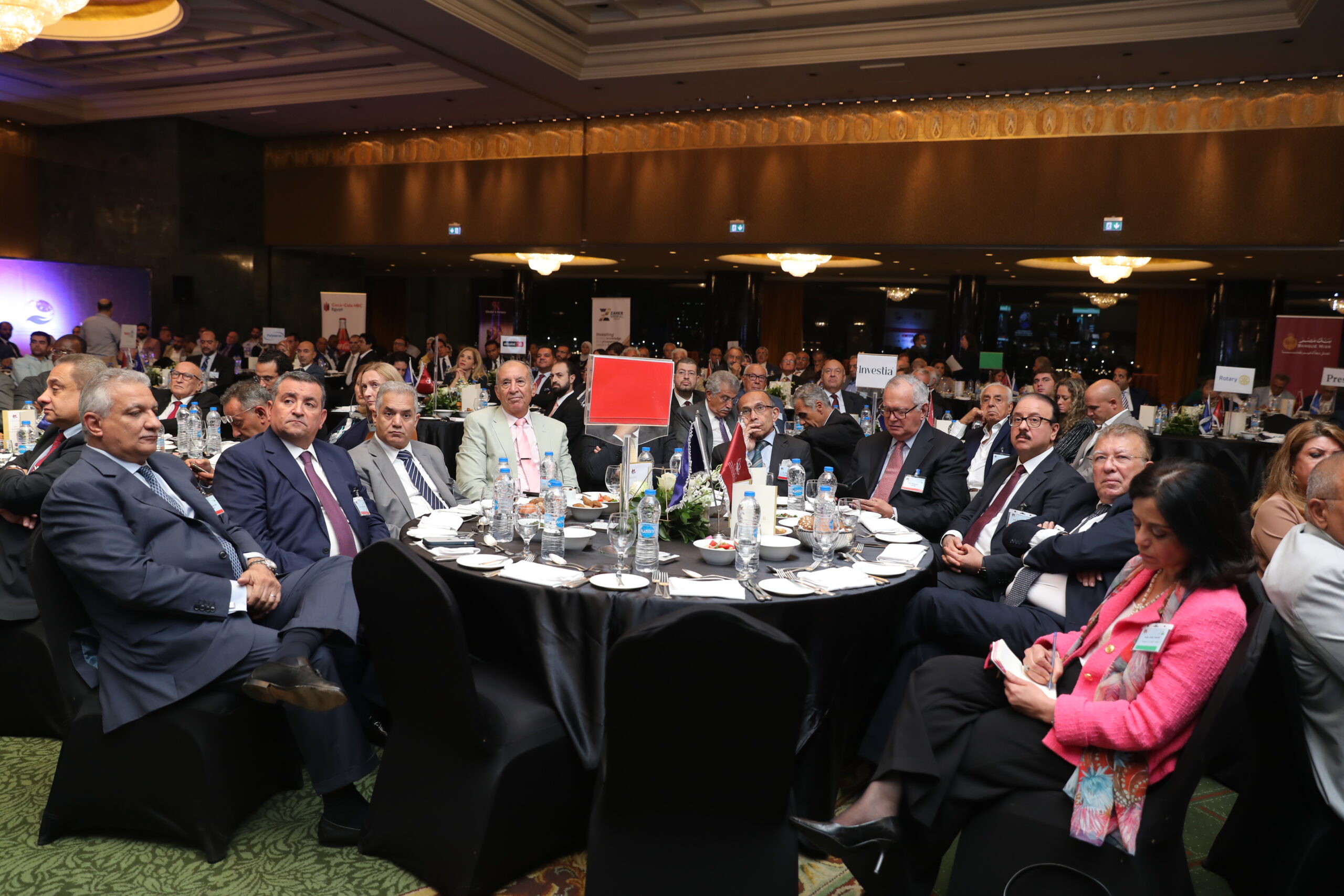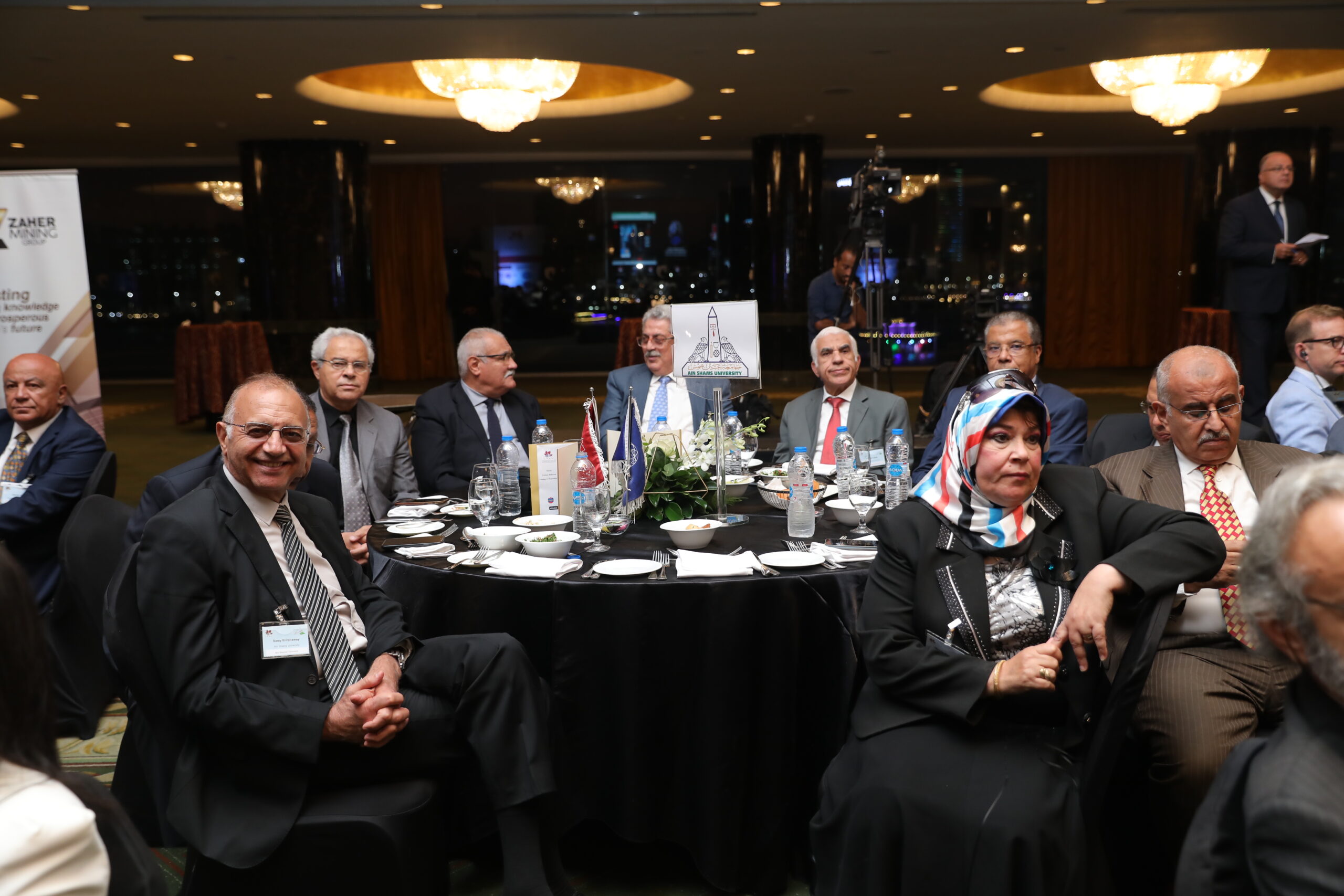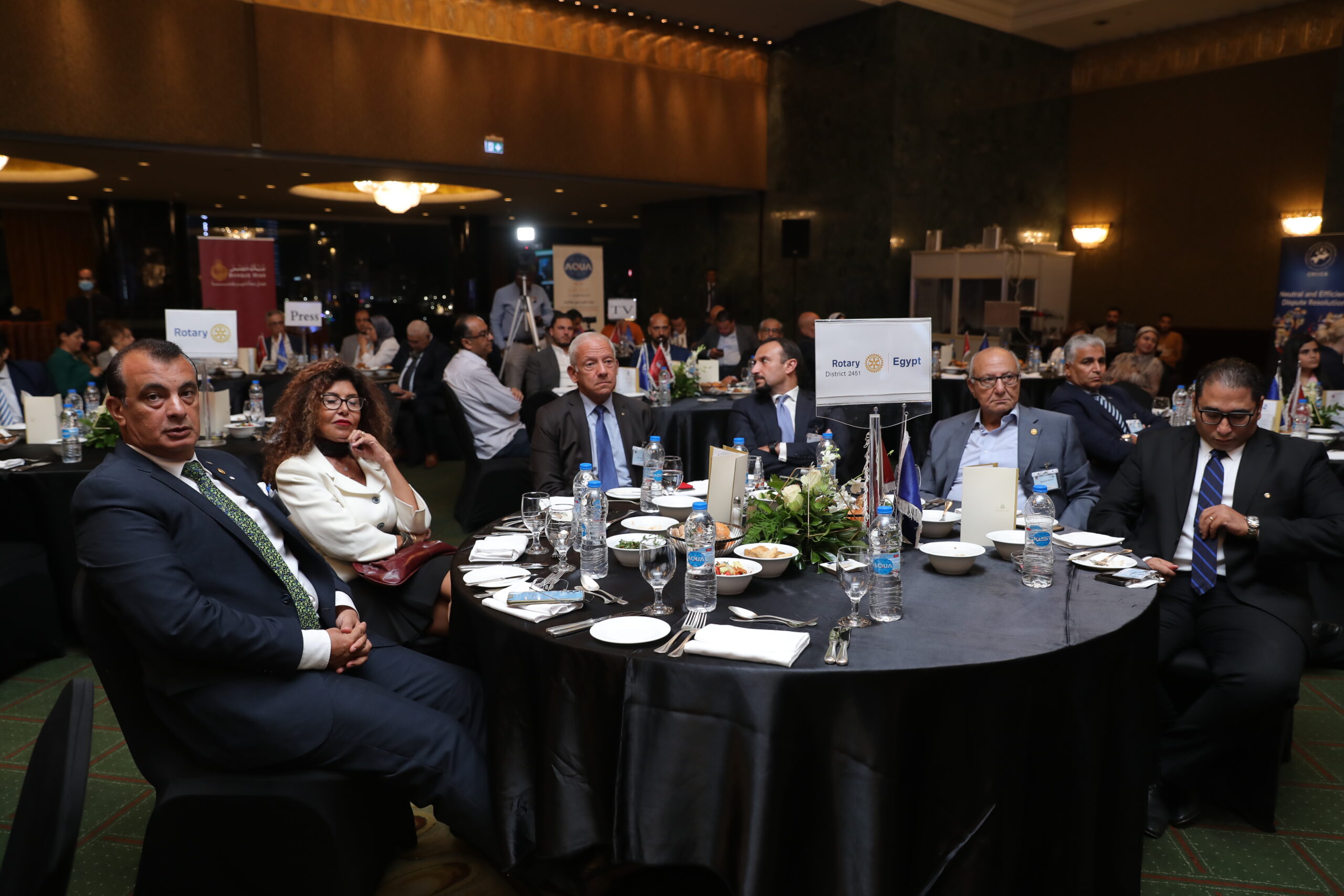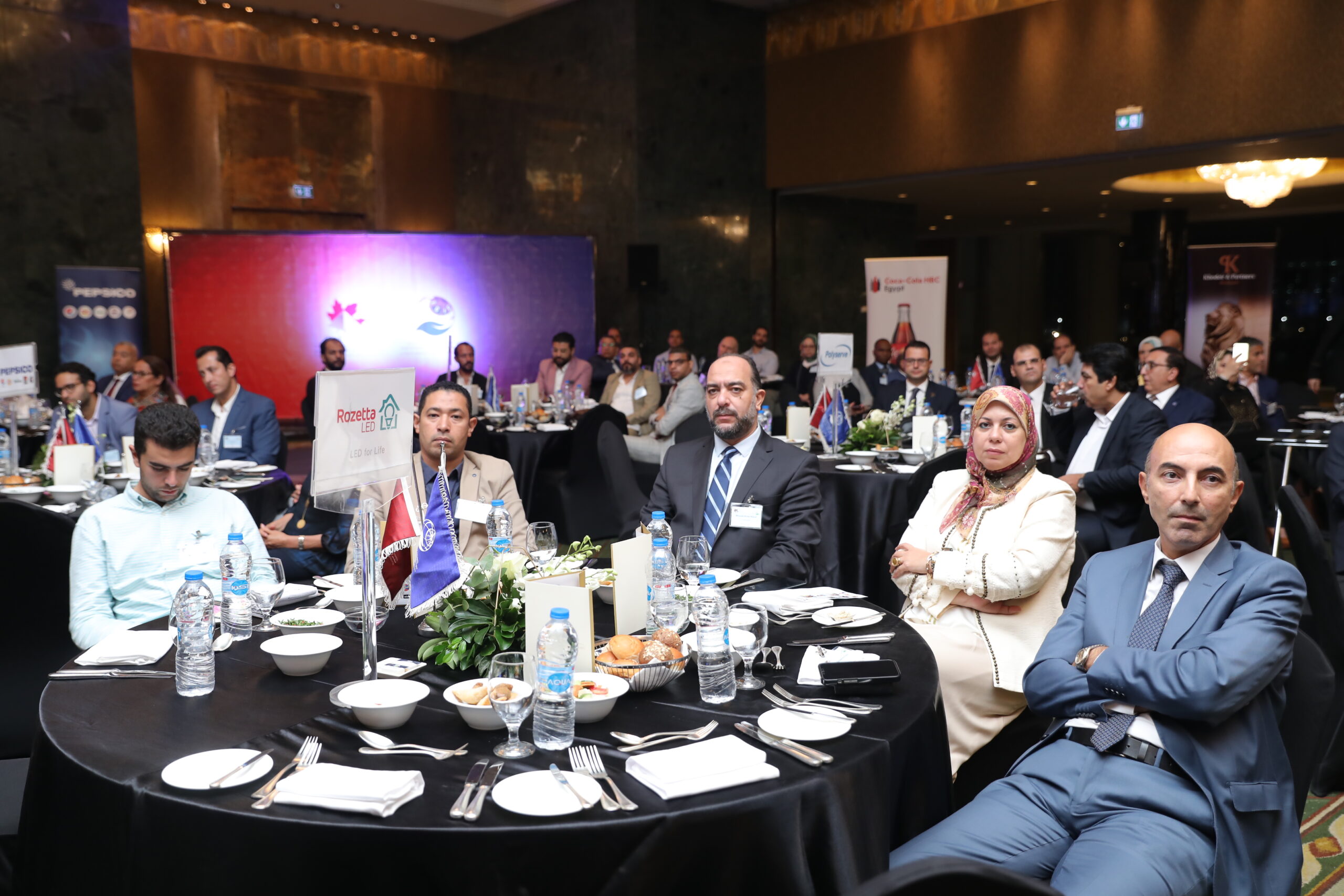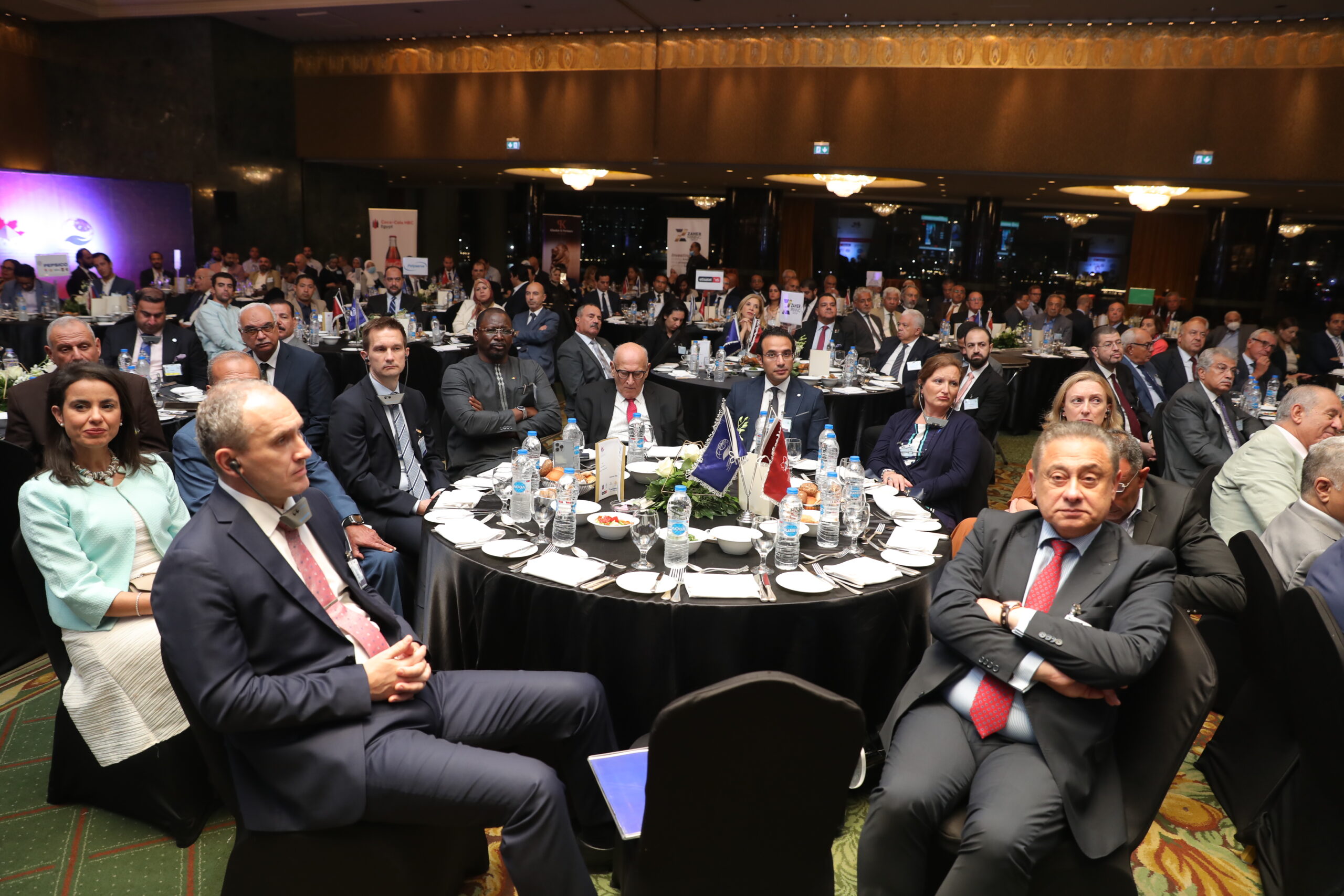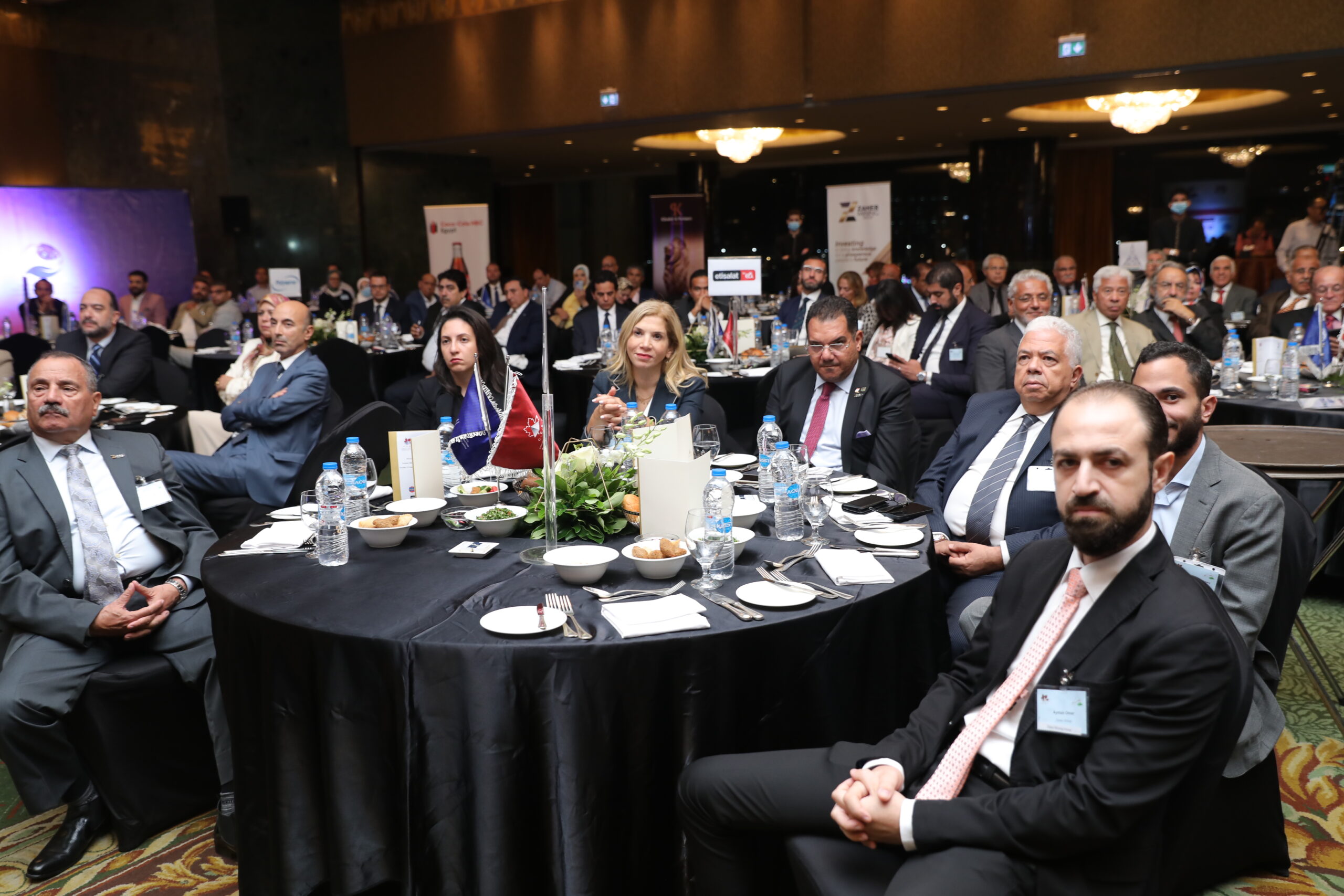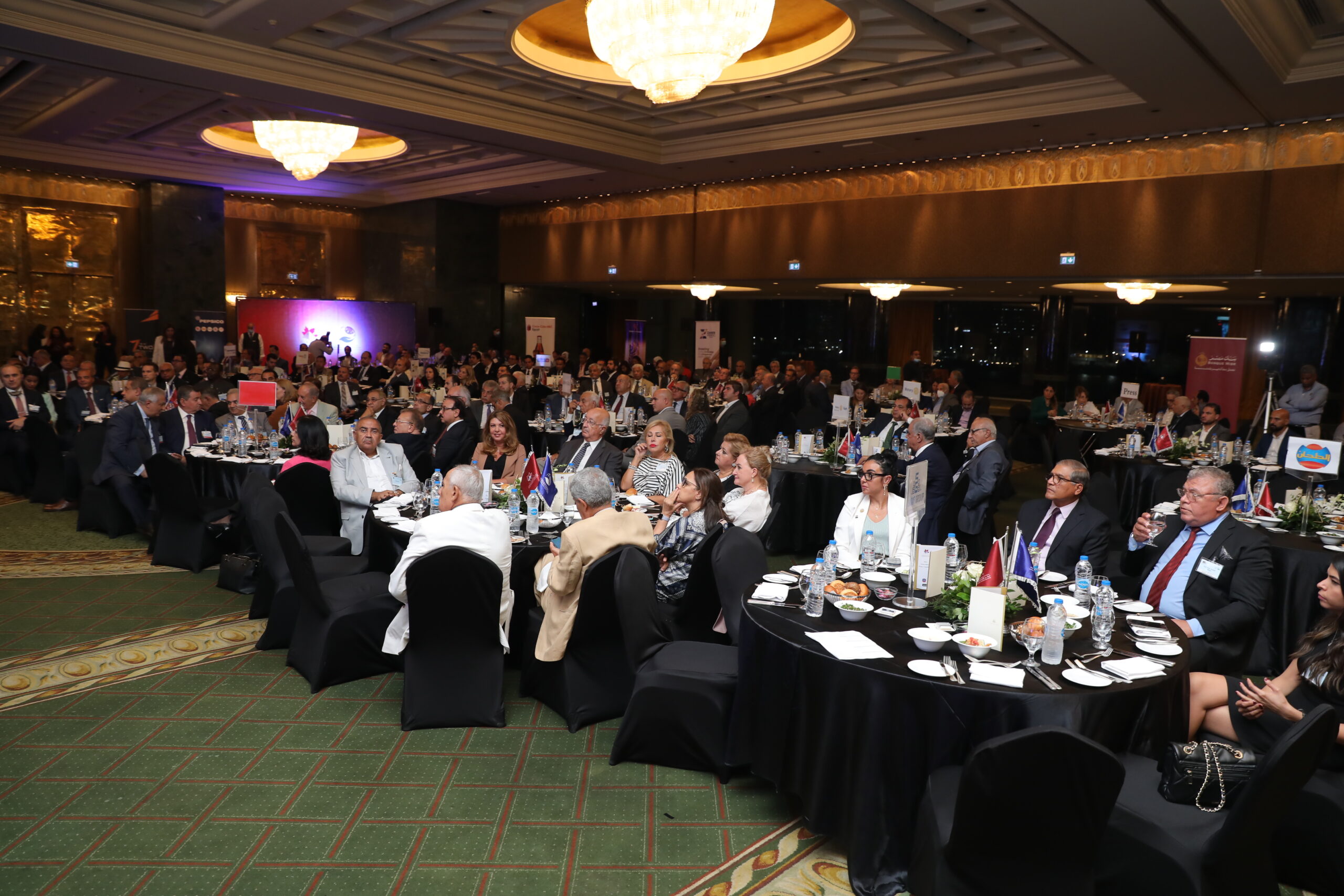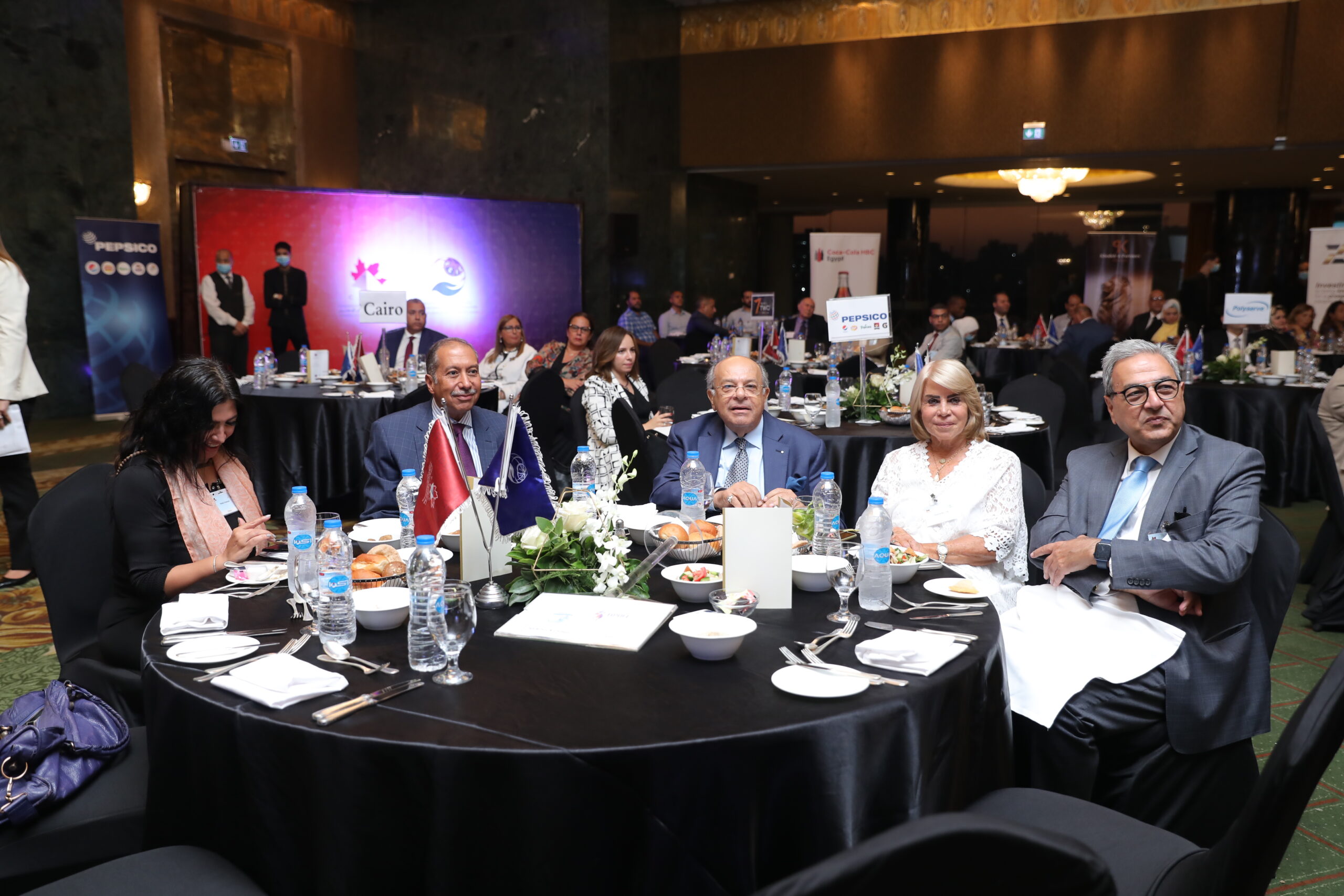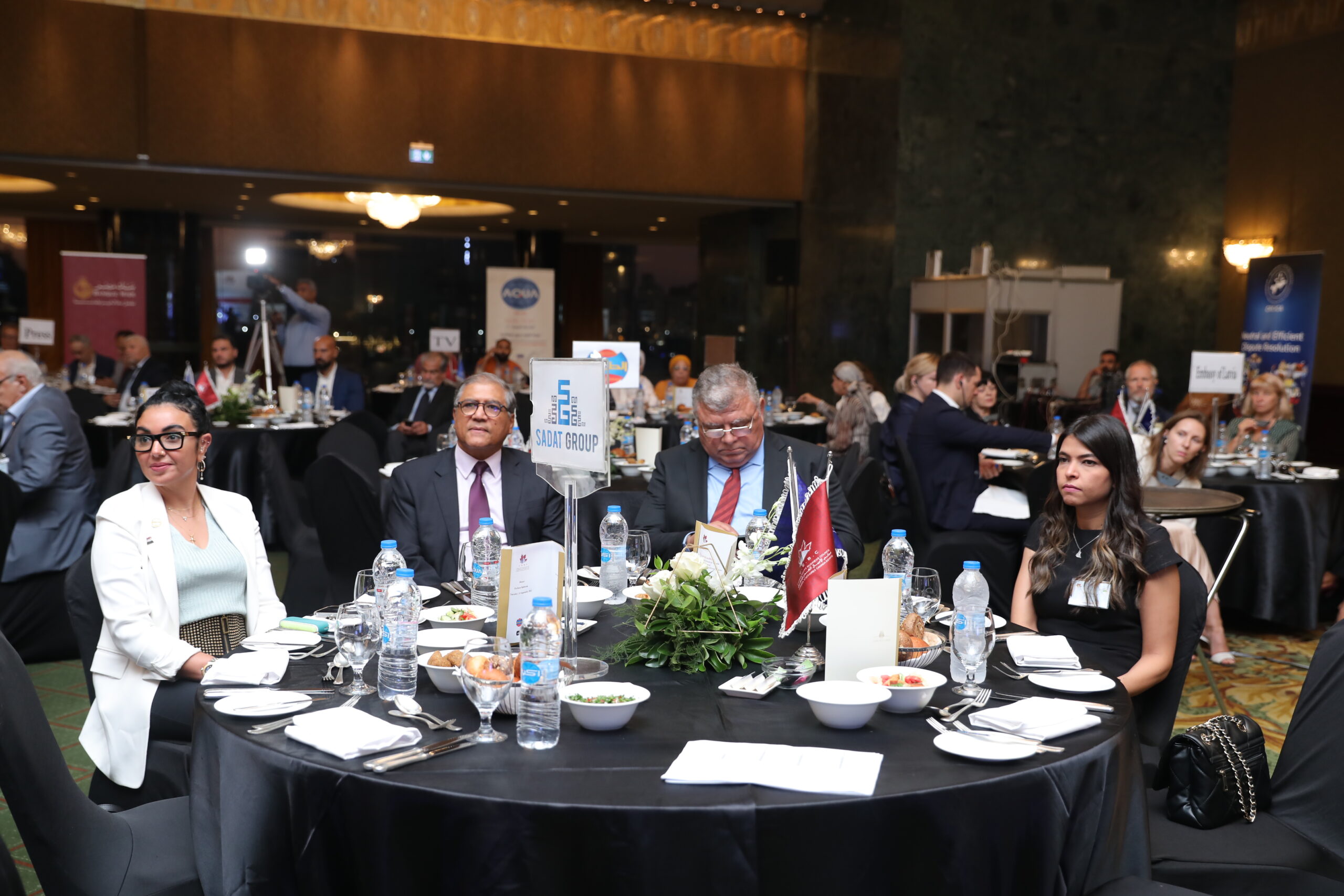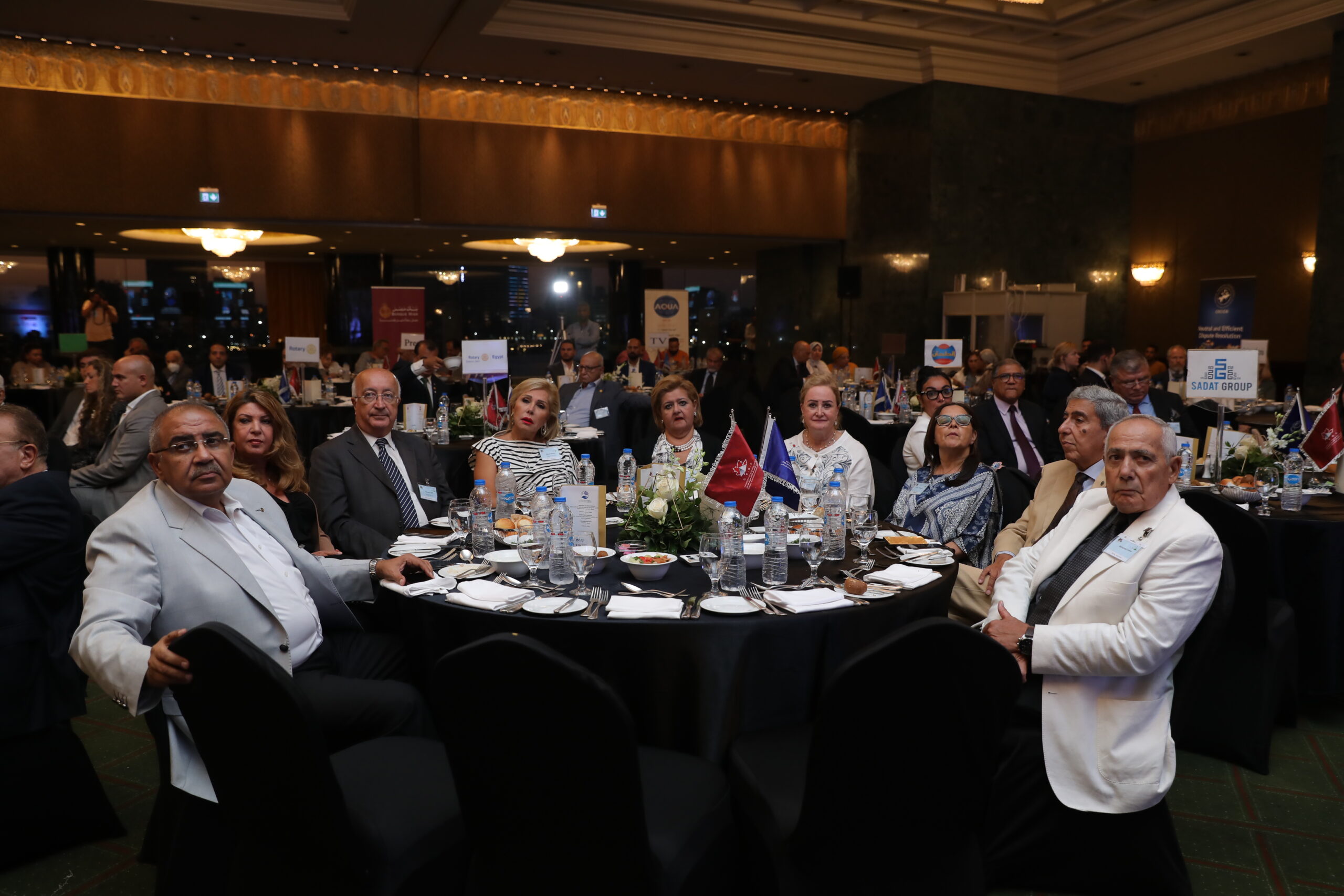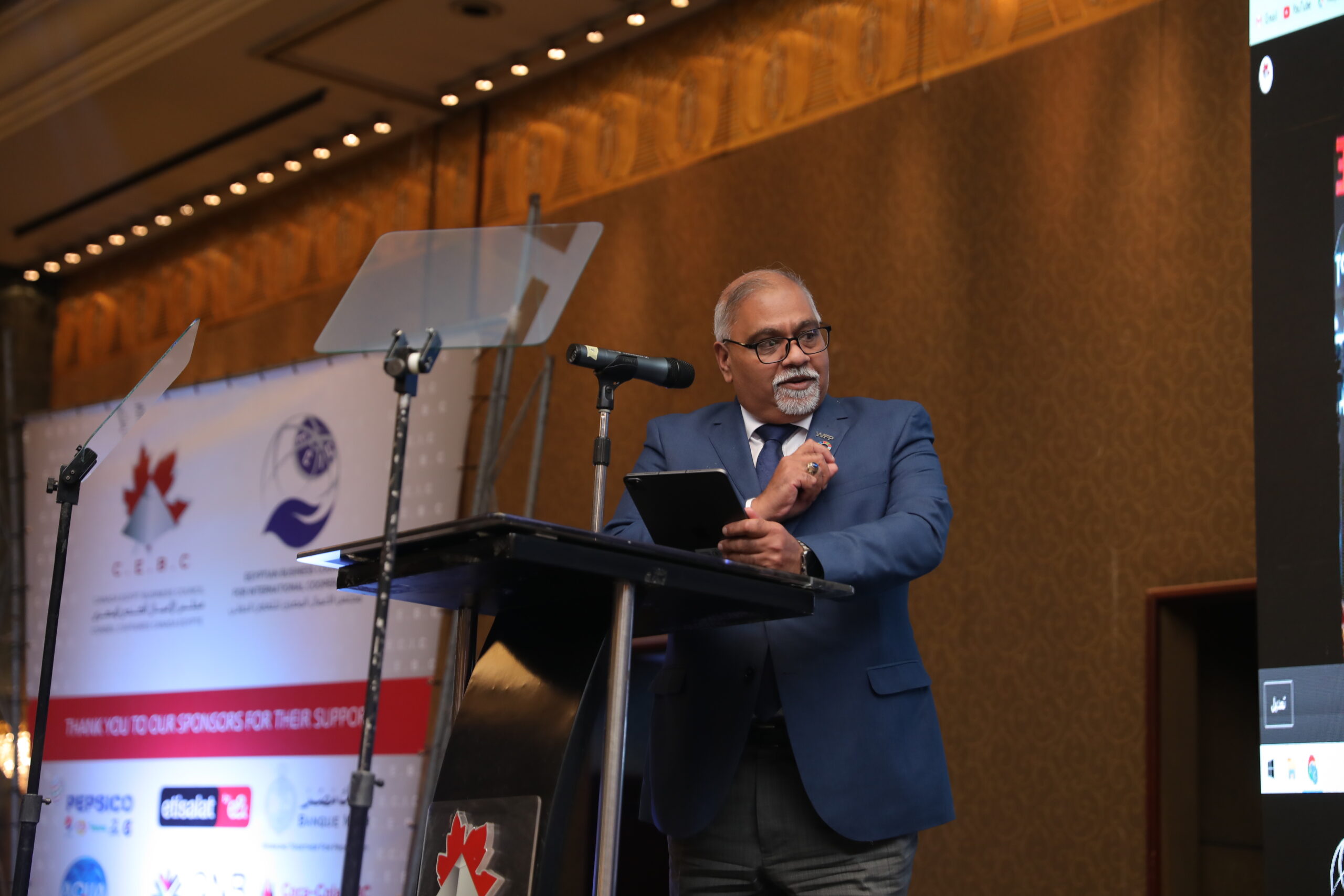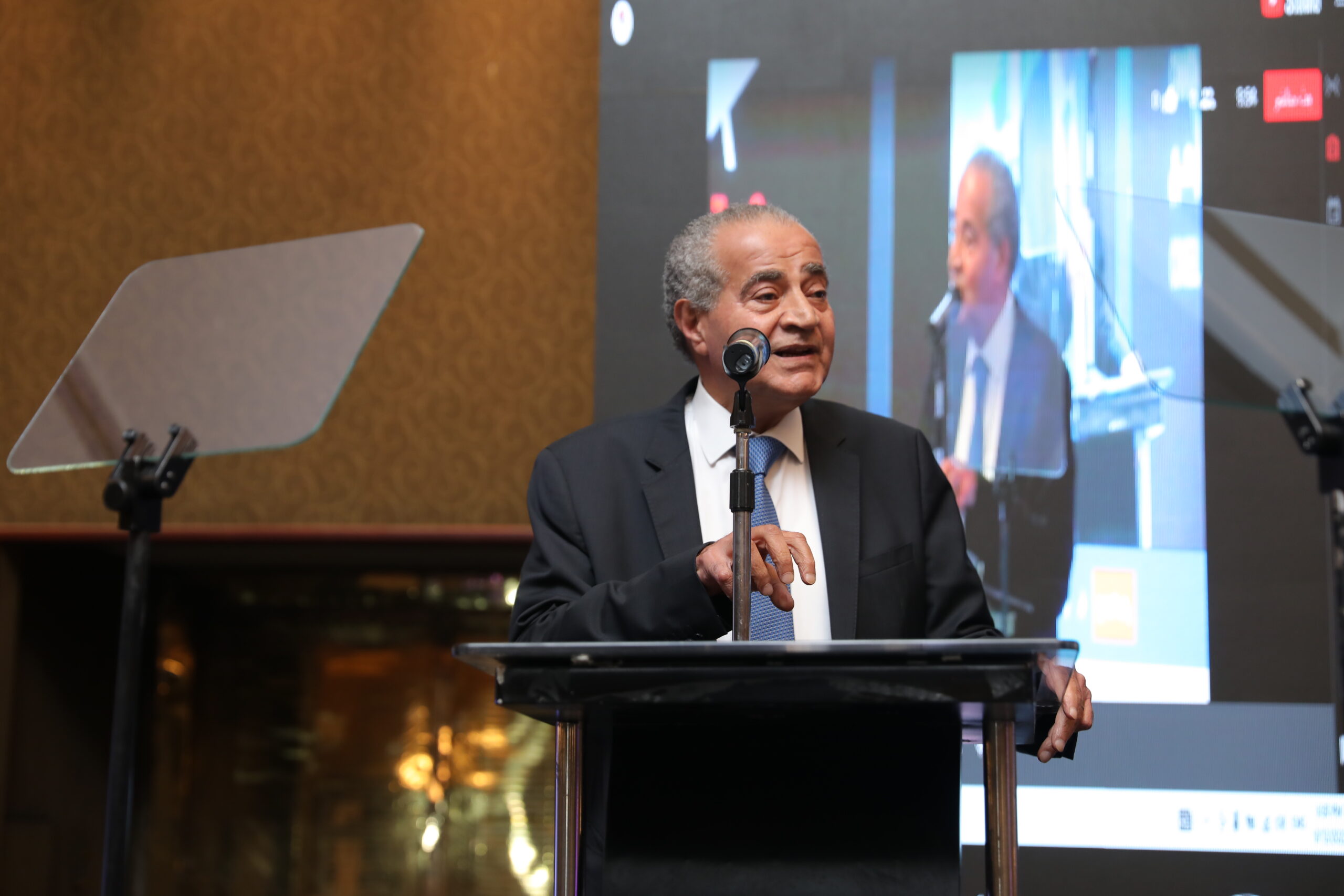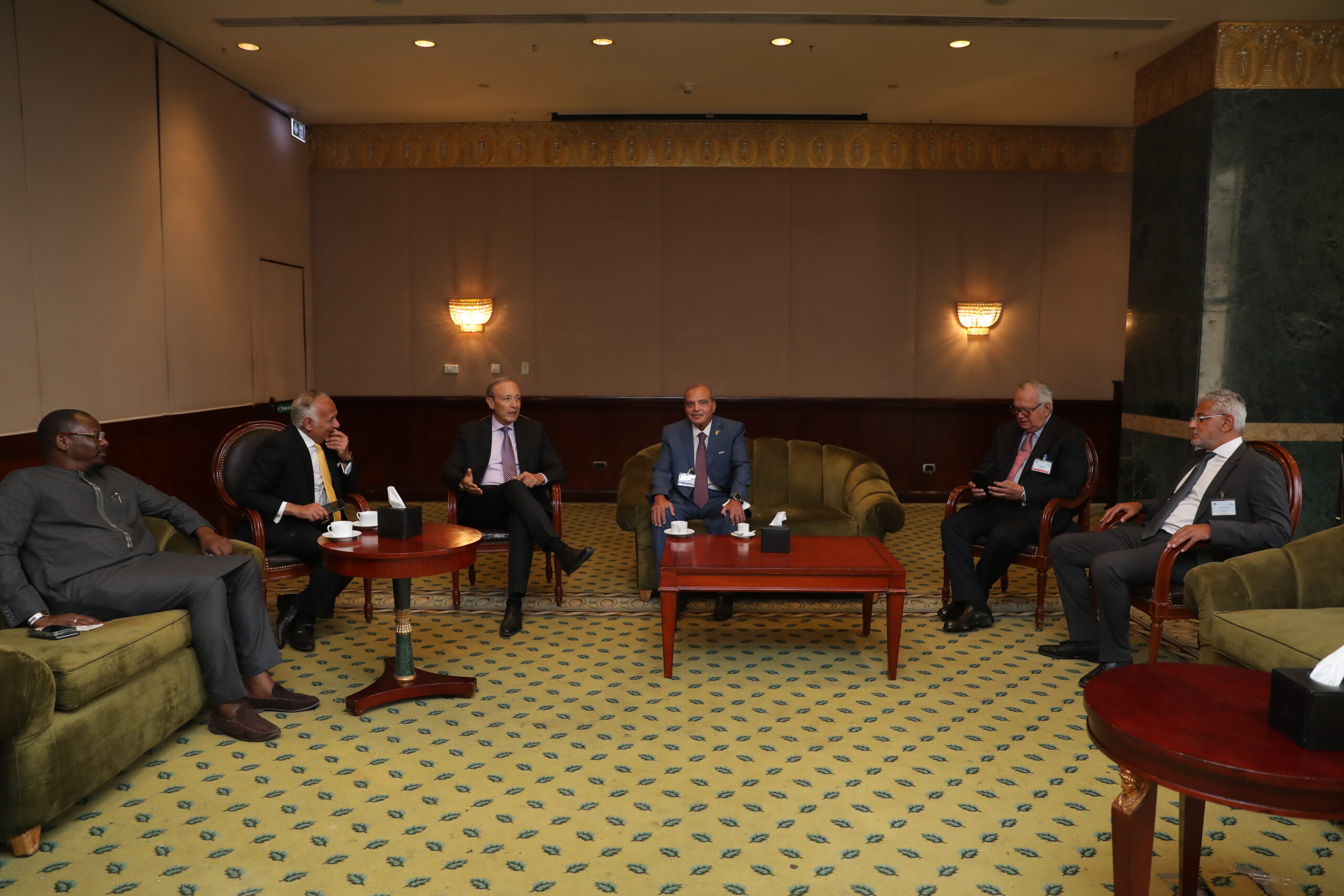
Date
Speaker(s)
Minister of Supply and Internal Trade & Mr. Praveen Agrawal
Representative & Country Director World Food Program-WFP Egypt & Eng. Aly Eissa
Chairman Egyptian Businessmen's Association- EBA
Invitation
Description
The world is currently facing a food crisis that is the most difficult since World War II. All countries have been worried about the future of their food security in light of the suspension of supply chains and the crazy rise in the prices of all commodities. For its part, Egypt has taken a package of pre-emptive measures to secure its needs of strategic commodities and work to control the markets and provide goods for citizens, which succeeded in alleviating these emergency shocks. However, with the continuation of this crisis and the lack of clarity on the future of this conflict, the food crisis remains an alarm and a threat to all the world’s markets.
In this symposium, Canada Egypt Business Council and the Egyptian Business Council for International Cooperation had the honor to host H.E. Dr. Ali Moselhy; Minister of Supply and Internal Trade, Mr. Praveen Agrawal; Representative & Country Director of World Food Program WFP Egypt and Eng. Aly Eissa; Chairman of Egyptian Businessmen’s Association – EBA discussing the topic “Global Crises and their Repercussions on the Food Market in Egypt”.
In his opening remarks Mr. Motaz Raslan started his speech stating that the current food crisis is considered the most serious food crisis facing the world since World War II, as all circumstances have combined to deepen the repercussions of this crisis, whether from the impact of climate changes and the drought of lands, passing through the repercussions of Corona, and the Russian-Ukrainian war, which led to out more strains on the food supply chains
He added that these disruptions were already pushing food prices due to high inflation rates, making it difficult or even impossible to predict the future of food in the world if these conditions continue, putting the global food security into a state of high risk.
Mr. Raslan went on to explain that the consequences of a looming food crisis may be more pronounced that even as according to recent figures estimates indicate that the losses of the current economic crisis that the world is witnessing are estimated to be about $12 trillion. Wheat prices have risen by about 53% since the beginning of the year, and the term “mass famine” appeared only the World Food Program. There are 323 million people walking towards famine and 49 million on the threshold
Mr. Raslan concluded his speech that despite of the lack of clarity of global vision and the state of turmoil experienced by the global food market, the Egyptian government is accelerating its steps and working to develop quick and continuous solutions to deal with this crisis by providing all goods, controlling markets and expanding the umbrella of social protection.
Then the floor was given to H.E. Dr. Ali Moselhy; Minister of Supply and Internal Trade, who announced that Egypt recently rejected several wheat offers, not because we do not need them, but because the existing reserve is sufficient for six months and a half, which gives us a higher ability to negotiate to obtain the best prices.
- E. indicated that President El -Sisi’s vision to increase the country’s storage capacities was a forerunner even before the crisis emerged, and storage energy has jumped from 1.2 million tons in 2014 to 3.6 million tons currently, and work is on the way to increase it by another 600,000 tons, noting that President Sisi will adopt in the coming days a plan to launch wholesale and a half -wholesale markets in the governorates.
He stated that the global prices have declined in some commodities and the prices of the wheat approached what it was before the Russian -Ukrainian war. However, he added that the international prices, in general, doesn’t reflect the actual situation, pointing out that the most important lessons learned from the Corona era and the Ukrainian war are that the world is not perceived as one village anymore, due to many forms of violating international trade rules and selfishness in possession of medical materials and vaccines and blocking goods from global trading of internal accounts.
The minister went on to explain that the world needs a comprehensive review of the economic system after the violation of international trade rules and blocking of goods, medical supplies and vaccines. However, Egypt continue to strengthen its regional relations and increase its production capabilities, noting that Egypt will be able to transform next year from an importer of 400,000 tons of sugar to an exporter after the factory in Minya starts operating with a capacity of 600,000 to 700,000 tons.
Dr. Moselhy stated that one of the lessons learned also from the crises is to reduce wastes, noting that the role of the Ministry is far beyond supply and support despite their importance, adding: “No grocer, bakery or mill can close without permission so that we can ensure goods are available to citizens all the time”.
The Minister of Supply called on the food and agriculture sectors effort to reduce the number of individuals who suffer from food insecurity worldwide, governments worldwide may have funds but they don’t find commodities to purchase because of the confusion in global markets, noting that Egypt is among the rest of the world fluctuations in countries that are affected by the food supply and efforts are being made to provide food for citizens and reduce the impact of inflation on strategic goods.
Mr. Praveen Agrawal; Representative & Country Director of World Food Program WFP Egypt began his speech by emphasizing on the current impact of the Ukrainian war on the global food security. He went on to explain that incredible number of people who are at risk. “The ripple effects of this crisis have been across the border and can be summarized as the Three Fs; Food, Fuel and Fertilizers, he added”. Food prices will drive more magnifying hunger, 345 million people will face food insecurity and 60 million children are at risk by the end of 2022 compared to 47 million in 2019.These figures represent half or 2/3 of the population of Egypt.
Mr. Agrawal that trade related polices are imposed by countries and food trading restrictions that have been put in place to increase domestic supply and reduce the prices. To combat the negative effect of the global food crisis, WFP is planning to assist between 140 to 150 million people in 2022. “To do this we need funding of 22 Billion dollars, he explained”.
He ended his speech by explaining the three main focuses of WFP goals which include; providing emergency food cashing systems & nutrition support to millions of people to prevent them from dying of hunger, supporting national social protection systems and, strengthening food system through leveraging, partnerships, services & programs that can strengthen global food systems & the entire supply chain.
From his side, Mr. Aly Eissa; Chairman of Egyptian Businessmen’s Association – EBA, assumed that Egypt was among the countries that will suffer greatly as a result of the global food crisis as a result of the Russian-Ukrainian war and the Corona crisis, but it is strange that so far there has not been a tangible shortage in the supply chains of food commodities in Egypt, even with the occurrence of an increase in the prices of these commodities, but they are present. Mr. Ali, called for increasing interest in increasing the local production of crops and providing assistance to farmers in pricing and all stages of production.
He concluded that more supportive measures and incentives should be added to support food production in Egypt including agriculture and moving away from punitive policies.
Then the floor was opened for questions and answers where many inquiries, questions and suggestions were discussed and many attendees praised the ongoing efforts of the Minister of Supply and Internal Trade.


